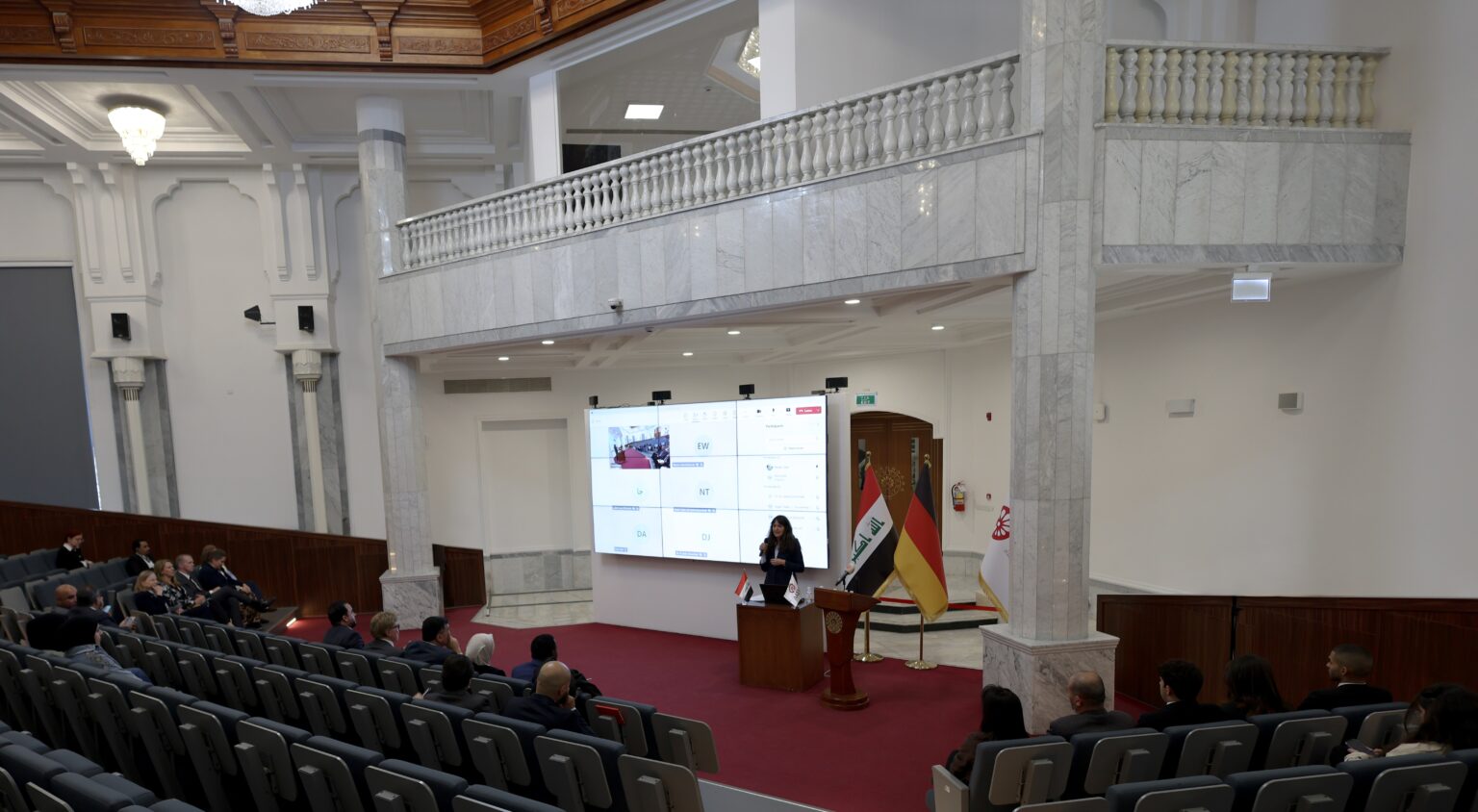Increasing water scarcity, climate change, and overall environmental degradation are threatening the very basis of life in the basin of the Tigris and the Euphrates, where the socioeconomic ramifications of these phenomena are already destabilizing societies and heavily impacting livelihoods. As part of its efforts to empower Iraq “to thrive in the face of adversity,” the American University of Iraq-Baghdad (AUIB) organized a seminar under the title, “The Social Impact of Climate Change in Iraq: Resilience Through Academic Exchange,” in cooperation with the GIGA Institute for Middle East Studies and the Berlin Institute for Empirical Research on Integration and Migration (BIM), and by generous funding from the German Academic Exchange Service (DAAD). The seminar brought together government officials, academic researchers, NGOs, and zealous students, with an aim to build a sustainable future through education and cooperation.
“Climate change has become a reality” that is not temporary, and its impact has become “evident and tangible” in Iraq at least since 2010, according to former Minister of Water Resources, Eng. Mahdi Rasheed Al-Hamadani, who considered upstream water projects in the Tigris-Euphrates Basin foremost among the factors behind “the great challenge” the country faces. “We need research” and “thinking in different ways” to meet this challenge, said Mr. Al-Hamadani, calling for urgent measures, chief of which are phasing out the traditional irrigation system based on open canals that allow evaporation and pollution of water, replacing it with a “closed irrigation system via tubes,” and reducing the per capita consumption of water. He pointed out that the average per capita consumption in Iraq is 550 Liter/day, compared to 200 or 240 Liter/day as a global average. Mr. Al-Hamadani also urged the government to prevent the depletion of aquifers, considering groundwater “an emergency supply” and a right for future generations.
Director of AUIB’s “Center for Climate Change, Water Security, and Environmental Sustainability” (CWE), Dr. David Kargbo, highlighted the university’s focus on conducting interdisciplinary research, considering the latter, along with education and the formulation of policy solutions, “the three pillars” of the Center’s approach to tackling socioeconomic crises arising from environmental change. He noted, in this context, that Iraq is the fifth most affected country in the world by climate change, the fact that is reflected in food insecurity, displacement, and unemployment, among other symptoms.
Three of the students at AUIB’s “Green Club,” Maryam Tarek, Youssef Ahmed, and Mustafa Nabeel, made a special contribution to the seminar, delivering presentations on possible approaches to counter the “existential threat” facing the country. They cast light on the disproportionate effects of increasing water scarcity and climate change on the southern parts of Iraq and on vulnerable segments of society, especially women, discussing the displacement of people as a result of the creeping desertification of the southern marshes, and introducing, in this context, the sociological concept of the “Risk Society.”
